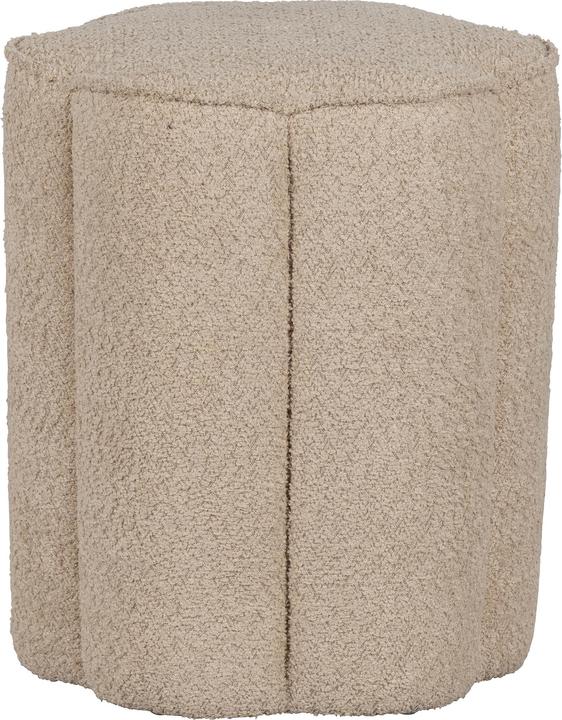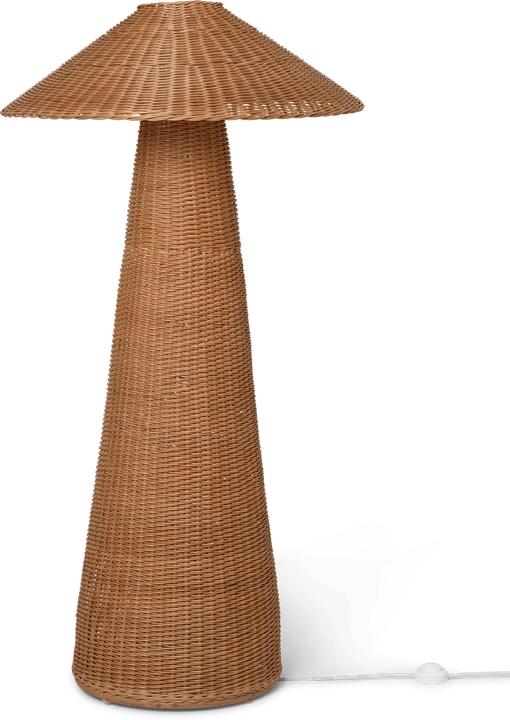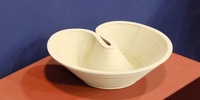

Interior in cappuccino colours: 5 steps to implement this tasteful concept
Since its foundation, every new project of the interior design company Mohd has been characterised with its own style. This year’s exhibition at Milan Design Week showed off playful shapes, a wide selection of design products and, above all, tasteful colour accents.
Living room? Beige. Bedroom? Also beige. The rooms that Studiopepe designed for the Italian interior design company Mohd for Milan Design Week were furnished almost entirely in calming, sandy tones. Closely followed by ochre (dark yellow) tones. The overall picture reminded me of the colour of a cappuccino and also felt like one: warming and invigorating at the same time.

Source: Pia Seidel
The exhibition serves as a mood board for a balanced interior that you can recreate step by step at home if you keep the following in mind – and imagine yourself sipping a coffee...
1. It’s all about layers
A cappuccino consists of three elements: espresso, hot milk and milk froth. Mohd’s production also relies on the layering principle, where «more is more». Minimalism isn’t what they’re going for here, rather they aim to maximise the interaction of many elements. Diversity is key: different materials, heights and surfaces create a visual masterpiece.



Source: Pia Seidel
2. Keep it warm and intimate
A cup of freshly brewed cappuccino warms your cockles. When furnishing, paint the walls and ceilings in soft beige and brown tones to create a warming cocooning effect.



Source: Pia Seidel
3. Choose a creamy texture
The pleasure of a cappuccino unfolds through its full flavour and creamy texture. In terms of furniture, that translates to: every surface and every detail add to the corresponding aesthetic and tactility. That’s why you should go for furniture and accessories with structures and patterns. Rattan furniture with wickerwork and fabrics with grip – for example Bouclé – create a cosy ambience. Even wood grains and marble patterns are visually interesting.



Source: Pia Seidel
4. Add the surprise factor
The caffeine content of a cappuccino provides an energy boost and wakes you up. Create a similar effect at home with a fascinating fusion of colours, textures and patterns. Combine unusual materials and integrate an eye-catcher in specific places that stands out from the crowd. Is your beige-coloured dining table area made entirely of wood? Then decorate it with a colourful ceramic or glass vase. Is all the furniture in your sofa corner covered with warm fabrics? Complete your seating area with a cool, steel or brass lamp.




Source: Pia Seidel
5. Add the surprise factor
Last but not least – for a cappuccino look, sand, beige and brown coloured furniture is a must. Some of my favourite pieces can be found below.
Other Mohd exhibitions
Like a cheerleader, I love celebrating good design and bringing you closer to everything furniture- and interior design- related. I regularly curate simple yet sophisticated interior ideas, report on trends and interview creative minds about their work.





